The Witcher's first season let us see sides of Yennefer the books and games haven't
Reacquaint yourself with Yennefer's story from season 1 of the Netflix series before you go into season 2.
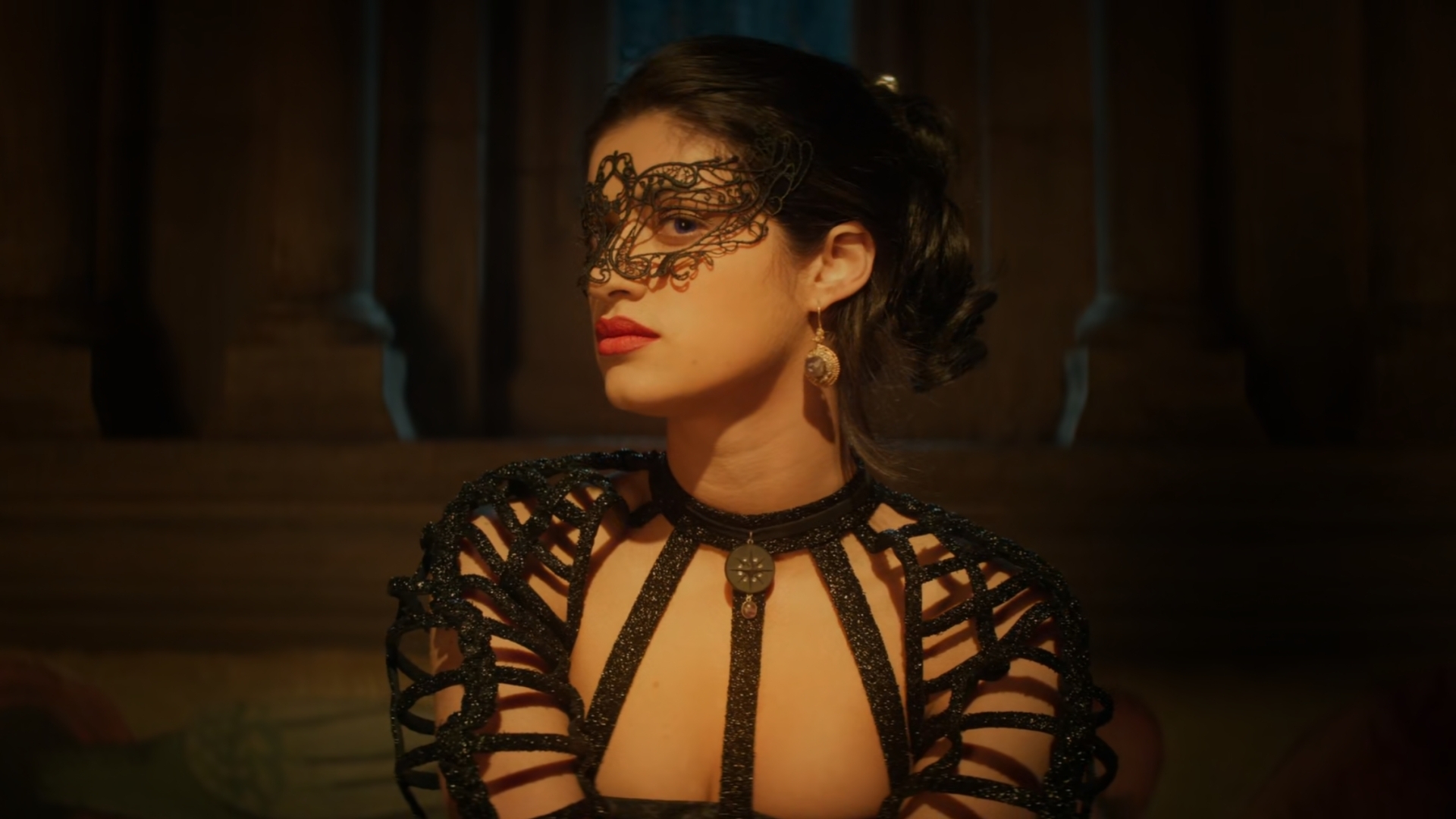
Readers spend substantially less time in Yennefer's head than in Geralt's or Ciri's in Andrzej Sapkowski's Witcher books. Of the three characters the Netflix version focuses on, she has the most blank space to fill in. In the first season we got to know her in ways we never had a chance to before.
Yennefer's magical abilities first manifest when she subconsciously portals from the farm where she grew up in the kingdom of Aedirn to the Tower of the Gull at Aretuza, presumably drawn by its magical energy. At the time she's trying to escape from the villagers who torment her for having a curved spine. Her natural magical talent—her connection to chaos—is set off by fear and anger. That's something this version of Yennefer has in common with Ciri, as well as elvish blood. (In the books, they also share a birthday.)
After being purchased by Aretuza's rector, Tissaia de Vries, Yennefer is locked in her room at the academy. Imprisoned after finding out she's worth less money than a pig, she attempts suicide. This is one part of Yennefer's life familiar from the books, shown in flashback near the end of The Lady of the Lake. Only there, after saving her life, Tissaia says this will be her last chance to cry as "there isn't a more hideous sight than a sorceress weeping." What a nice lady.
Over the course of two episodes, Yennefer goes through her education at Aretuza, learning that magic demands "balance and control," as Tissaia says. "Without them, chaos will kill you." The rector demonstrates the importance of balance by having students draw life from a flower to levitate a rock, letting Fringilla magically desiccate her own hand first to prove a point. (Again, nice lady.) Tissaia demonstrates the importance of control by having the students capture lightning in a bottle, and when a classmate betters her, Yennefer's jealous rage manifests as a lightning bolt that's almost fatal.
During this time Yennefer begins and ends a relationship with Istredd (a mage studying at Ban Ard Academy, which is Aretuza for boys), and undergoes enchantment, giving up her womb to be magically resculpted into a beautiful, ageless sorceress. She goes from misery to triumph, manipulating her way out of appointment to the court of Nilfgaard and into the glamorous court of her homeland, Aedirn.
And yet, one episode later, she's miserable again. During the 30 years between her graduation and when we catch up with her sharing a carriage with Queen Kalis, Yennefer's realized her childish dream was naïve. Instead of having power and leaving a mark on history, she's been "cleaning up stupid political messes" as a "glorified royal arsewiper."
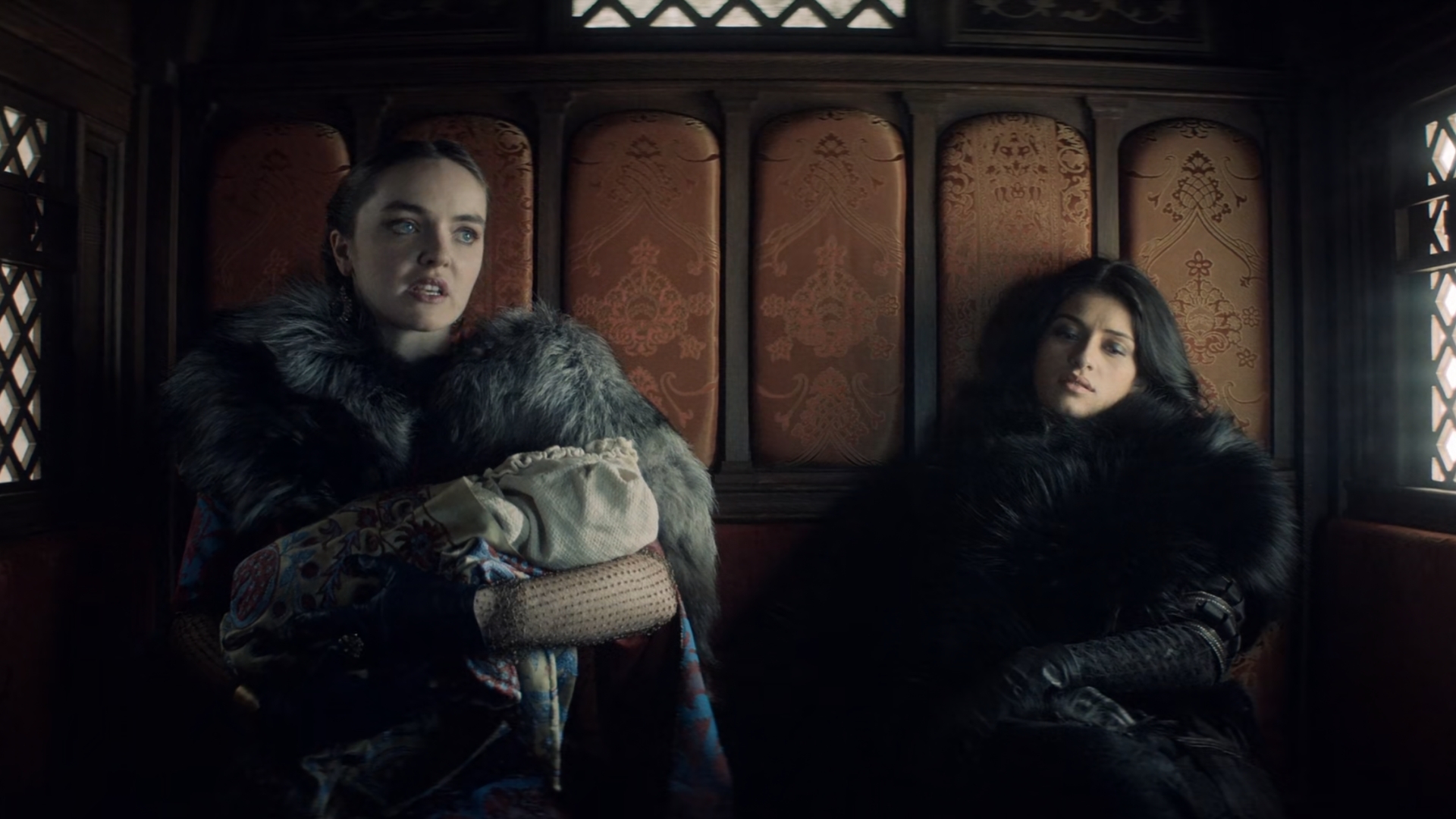
(Side note: Kalis, the doomed Queen of Lyria who gave birth to too many daughters, is the mother of Meve, protagonist of Thronebreaker: The Witcher Tales.)
The biggest gaming news, reviews and hardware deals
Keep up to date with the most important stories and the best deals, as picked by the PC Gamer team.
The sequence where Yennefer fails to protect one of the Queen's children from a magical assassin, climaxing with the extremely Witcher moment where she sits on a beach telling a dead baby "you're not missing much," sets her on a new path. She stops working for the Brotherhood, who train mages to be royal advisors, and goes rogue, searching for a way to restore her fertility. In a subtle but meaningful change from the books, it's not because she wants to have a baby. Rather, she wants the ability to choose for herself. Like the suicide attempt, Yennefer's most powerful motivation is a need for autonomy.
When Geralt and Yennefer cross paths in Rinde, she's charmed the mayor and turned his fancy house into her personal party palace by removing the inhibitions of some locals. It could be she has them under complete control, as she's done with the mayor and, later, Geralt, but given the townsfolk's response to the spell ending is not fury nor disgust but rather looking for their pants in embarrassment, I don't read it that way.
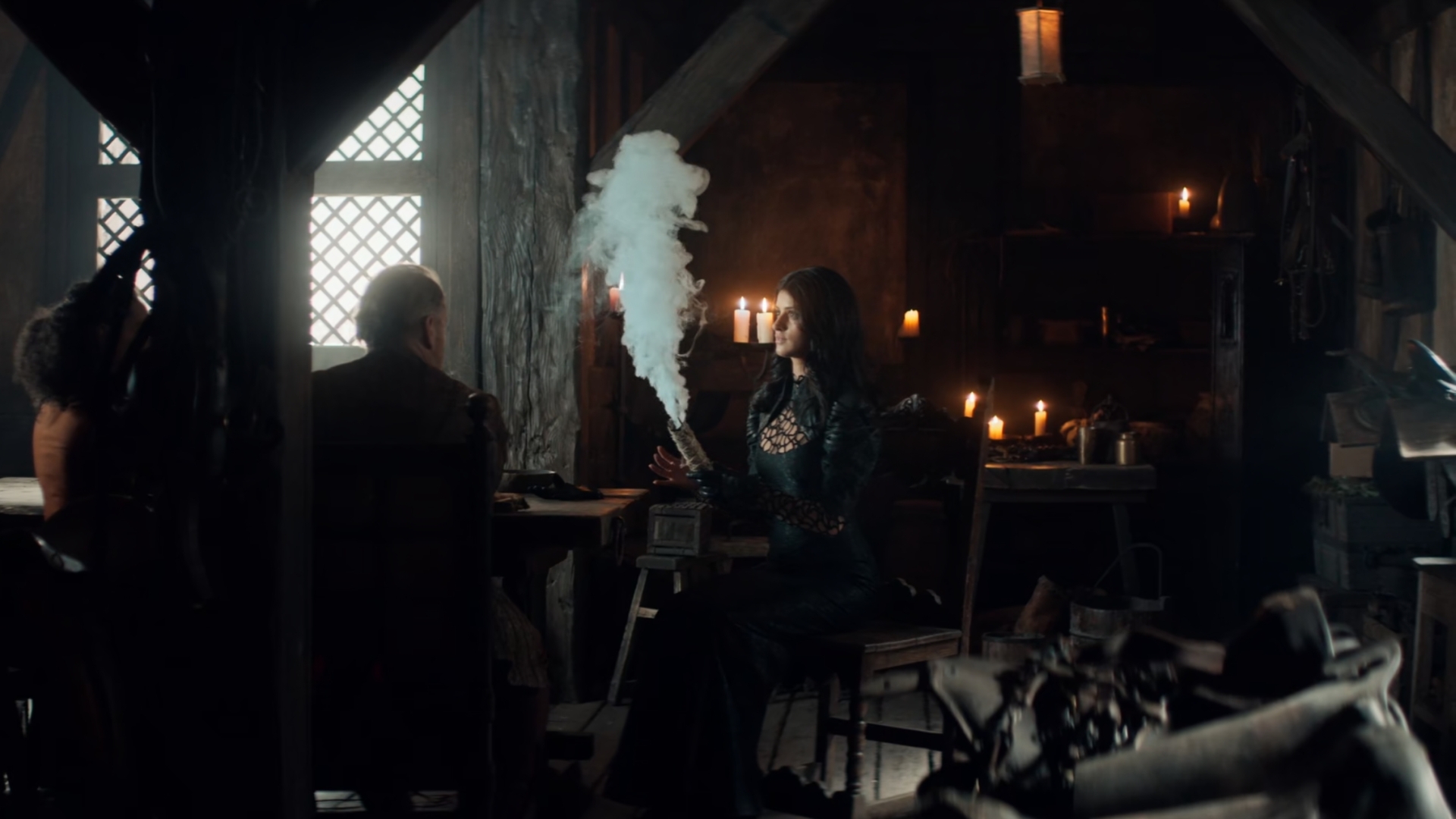
Plus, she's shown magically enhancing a husband's, er, potency earlier in the episode for a reason, and mentally dominating more than a couple of individuals is suggested elsewhere to be difficult. In the first episode, Stregobor's belief that Renfri mind-controls her bandits is the reason he wants to dissect her and figure out how it's done, while in the finale Fringilla only manages it with the brain-worms in her arsenal of banned magic.
Yennefer's relationship with Geralt gets off to a rocky start—begin as you mean to go on, they say—when she manipulates him for access to the djinn he's come to her for help with. And yet, he still saves her life and binds their fates together.
Stubbornness, pride, and willingness to die for something that matters to her are things Yennefer has in common with Geralt. They've both been ostracized and, as children, mistreated by adults to make them more useful agents. The end result is two people unnaturally determined to stay independent, refusing to take sides unless forced to, and desperate to be in charge of their own destinies. "When did you last feel happy when you felt trapped?" Geralt asks her.
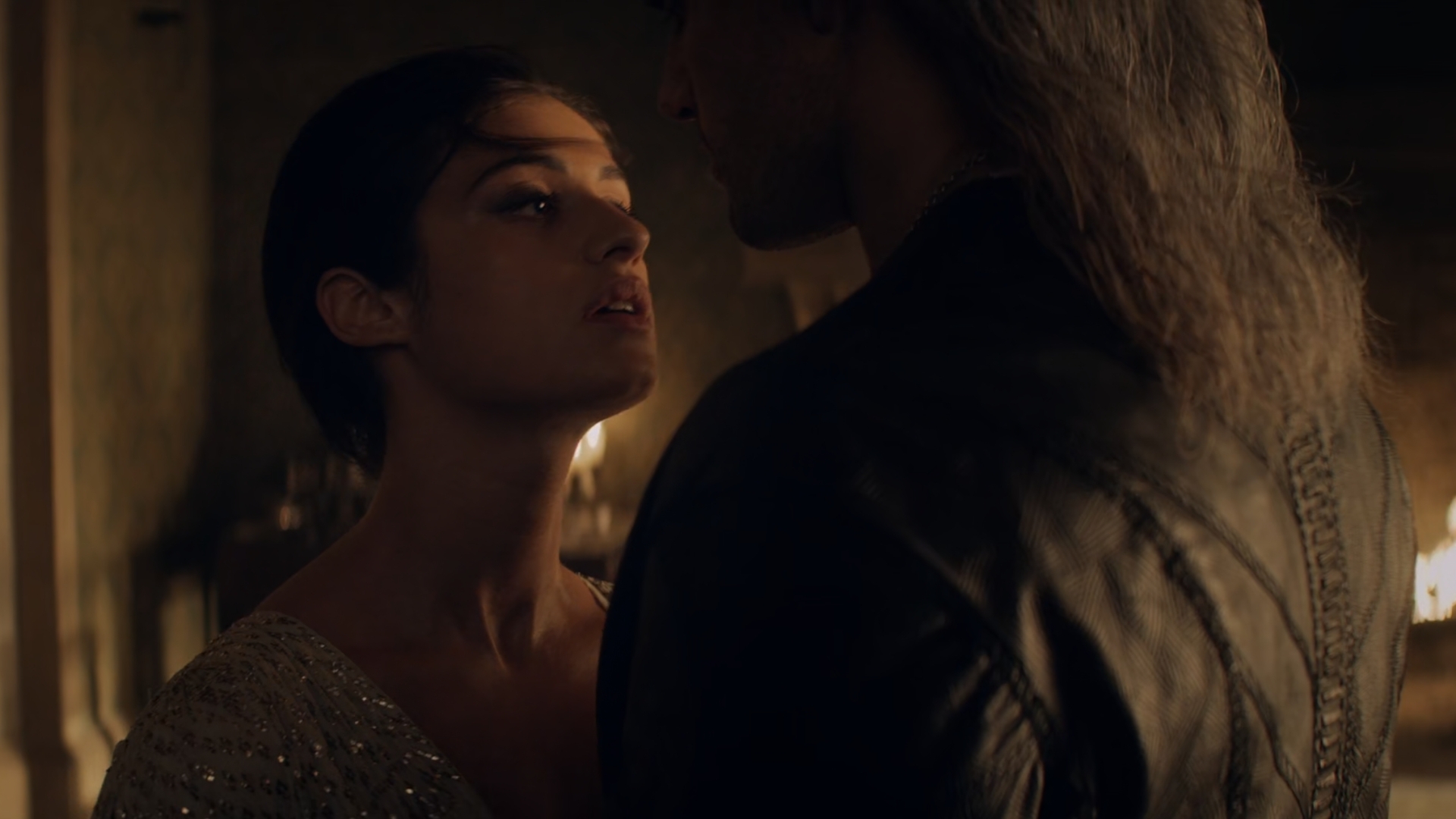
Seeing Yennefer as we do in the show makes it easier to understand why the two end up together, but also makes it plain where their self-determination is going to end up. The course of true love never did run smooth, and one time-skip later, they've broken up. Not only that, but we see in flashback a string of breakups and reunions between episodes setting the pattern for their relationship to come. These are the Yennefer and Geralt we know.
There's one last thing the show depicts that the books only hinted at: the Battle of Sodden Hill. Here, Yennefer stands with her fellow mages to hold back an army of Nilfgaardians. To get to this point takes some convincing, of course. Yennefer is cast in a narrative role normally reserved for men: the charming, cynical antihero who only reluctantly joins the fight, whose self-interest has to be overcome before they finally do what's right. She's Rick in Casablanca, Pablo in For Whom the Bell Tolls, Han Solo in Star Wars.
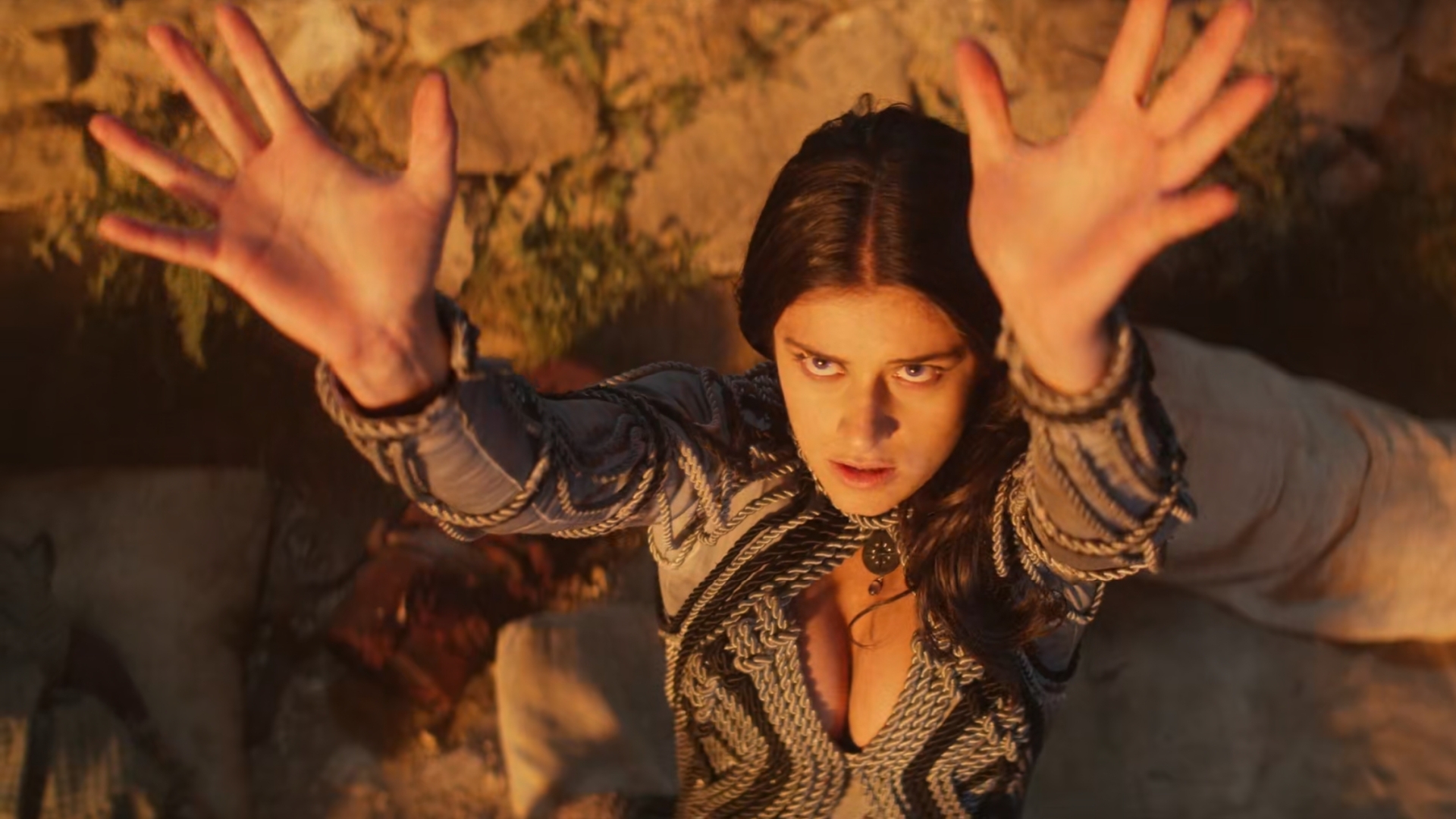
At the battle's climax, Tissaia convinces Yennefer to unleash the chaos she's been taught to control, to free the anger that made her attempt suicide on her first night in Aretuza, hurl lightning at a classmate, undergo magical plastic surgery without anesthetic, fight to save a baby from an assassin, and try to bind an elemental being into her own abdomen. Yet even when she does, casting one hell of a fireball, she does it with the balance and control she was taught—she takes fire from the burning fortress to power the spell, and manipulates those flames so Tissaia remains completely untouched by them. Still, Yennefer has to pay a cost, and when the smoke clears, she's gone. Ciri has a vision of Tissaia and then Geralt calling Yennefer's name on a burning battlefield, but that's the last of her we see in the first season.
Though gone, she's still on everyone's minds. The final words of the episode are Ciri asking Geralt, "Who is Yennefer?" Thanks to the backstory the show gives her, we know the answer better than ever.
The Witcher season 3: Trailers, cast, and story
The Witcher 4: What we know about the "new saga"
The Witcher books: Where to start

Jody's first computer was a Commodore 64, so he remembers having to use a code wheel to play Pool of Radiance. A former music journalist who interviewed everyone from Giorgio Moroder to Trent Reznor, Jody also co-hosted Australia's first radio show about videogames, Zed Games. He's written for Rock Paper Shotgun, The Big Issue, GamesRadar, Zam, Glixel, Five Out of Ten Magazine, and Playboy.com, whose cheques with the bunny logo made for fun conversations at the bank. Jody's first article for PC Gamer was about the audio of Alien Isolation, published in 2015, and since then he's written about why Silent Hill belongs on PC, why Recettear: An Item Shop's Tale is the best fantasy shopkeeper tycoon game, and how weird Lost Ark can get. Jody edited PC Gamer Indie from 2017 to 2018, and he eventually lived up to his promise to play every Warhammer videogame.


